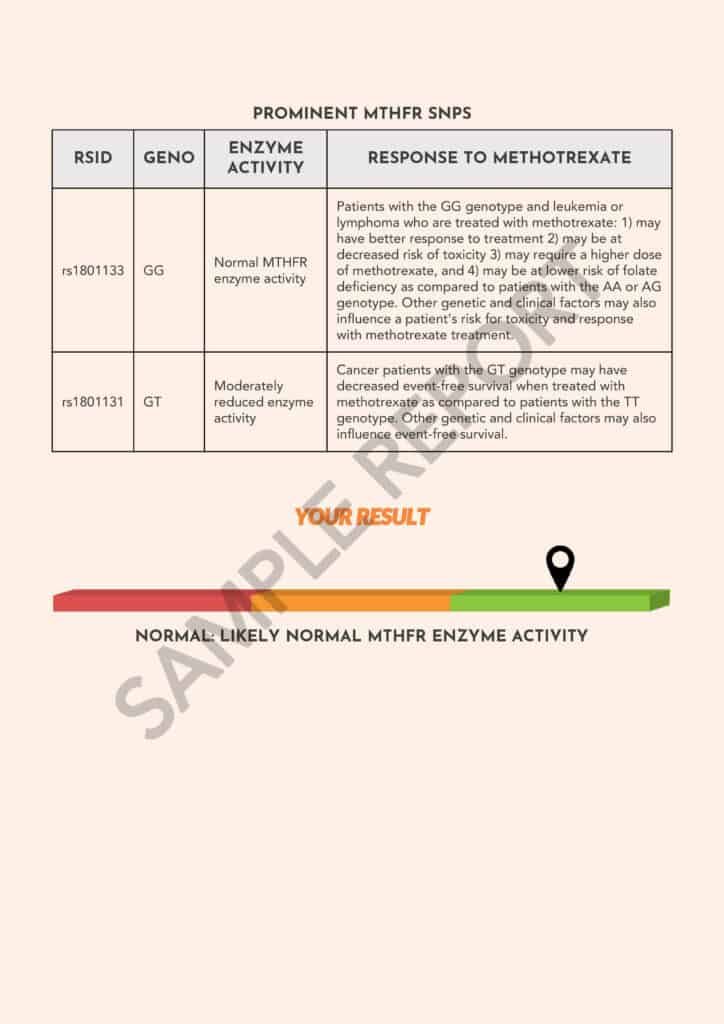What is The MTHFR Gene?
MTHFR is a gene that makes up the enzyme Methylenetetrahydrofolate reductase.
This enzyme breaks down homocysteine, a type of amino acid harmful to the body at excess levels.
This enzyme helps convert folate, the inactive form of Vitamin B9, to active folic acid.
Changes in this gene can cause vitamin B deficiency in the body.
In addition, it can lead to the accumulation of excess homocysteine in the body.
It can cause vitamin B12 deficiency and blood clots and damage blood vessels.
It, in turn, can cause various disorders and diseases.
MTHFR Gene Mutations: What Are They?
You can have two different genetic variations that can cause these mutations.
You can have either one or two of these variants.
Symptoms are likely to be seen if you have both these variants (homozygous) or two copies of one variant.
The two genetic variants are:
- C677T: Almost 30-40% of Americans have this variant.
25% of Hispanics and a small percentage of Caucasians have this genetic variation.
- A1298C: This variant is more common among North Americans and less common among Asians.
Image: Snippet from MTHFR and Methylation Report
5 Common MTHFR Gene Mutation Symptoms
Scientists are still researching the possible symptoms of MTHFR gene mutations.
These are some common symptoms that seem to affect many people with this condition.
Some signs and symptoms of those with MTHFR gene mutations include
- Developmental issues like ADHD
- Abnormal blood clotting
- Chronic fatigue
- Cardiovascular troubles
- Mental health issues
How To Identify MTHFR Gene Mutation?
A doctor can help identify an MTHFR variant by considering several parameters.
Some of them include
- A detailed medical history
- Current symptoms
- Homocysteine levels
- Cardiac masters
If a mutation is suspected, a genetic test can be used to identify the presence of MTHFR variants.
Learn In-Depth About Your MTHFR Gene With The MTHFR and Methylation Report
MTHFR Genetic Test: An Overview
Genetic testing might be helpful if you have some of the above conditions and also have excess homocysteine levels in the body.
Some ways to tell if you have high levels of homocysteine are:
- You have diabetes and cholesterol
- You have high blood pressure
- You have vitamin deficiencies like folate and riboflavin
Your saliva is collected in a vial and sent to a lab to test for the MTHFR gene.
It can usually take about two weeks to six weeks.
This genetic information might help you make some lifestyle changes that will help manage high homocysteine levels.
These changes include eating a healthy balanced diet and getting enough exercise.
Summary: MTHFR Gene Mutation Symptoms
MTHFR is a crucial gene for several important functions in the body
Having mutations in this gene can cause high homocysteine levels in the body.
It can show up as cardiovascular disorders, troublesome pregnancy and frequent miscarriages, and even cancer.
Genetic testing is the most reliable way to identify this variant.
Identifying the variants might help a person make specific lifestyle changes to lower homocysteine levels in the blood.






